Ethereum Merge: Blockchain's Future
The dynamic world of blockchain technology is constantly evolving, and the recent Ethereum Merge has brought about significant transformations in the way this leading cryptocurrency operates. In a captivating webinar hosted by ArbTech, Sophie Nappert, Co-Founder of ArbTech, moderated an insightful discussion between industry experts Colin Rule, CEO of Arbitrate.com & Mediate.com, and Joe Raczynski, Technologist & Futurist at Thomson Reuters. This article delves deep into the discussions held during the webinar, exploring the implications of the Ethereum Merge's shift from Proof of Work to Proof of Stake, its environmental impact, cryptoeconomic model, and the potential ripple effects that might redefine the future of blockchain technology.
The Ethereum Merge: A Structural Shift
The Ethereum Merge marks a momentous transition from the energy-intensive Proof of Work (PoW) consensus mechanism to the more eco-friendly Proof of Stake (PoS) mechanism. PoW has been the traditional foundation of the Ethereum blockchain, requiring miners to solve complex mathematical problems to validate transactions. However, the energy-intensive nature of PoW has been a cause for concern, leading to high carbon footprints and environmental implications.
With the implementation of PoS, Ethereum aims to achieve greater scalability, security, and energy efficiency. PoS relies on validators who are required to lock a certain amount of cryptocurrency as a stake, providing them with the right to validate blocks and earn rewards. This shift is expected to significantly reduce energy consumption and address concerns related to environmental sustainability.
Environmental Impact and Carbon Footprint
One of the central points of discussion in the webinar was the environmental impact of blockchain technology, particularly in the context of the Ethereum Merge. While the transition to PoS is expected to curb Ethereum's carbon footprint, it also raises questions about the broader environmental consequences of blockchain networks worldwide.
The panelists emphasized the importance of considering the bigger picture, exploring sustainable energy sources, and seeking ways to further minimize the environmental impact of blockchain operations. With the increasing focus on environmental responsibility, blockchain developers and stakeholders must work collaboratively to design eco-friendly solutions without compromising on the technology's core functionalities.
Cryptoeconomic Model and Competitors
The Ethereum Merge also prompts a reevaluation of its cryptoeconomic model and competitive landscape. As Ethereum transitions to PoS, the role and incentives of stakeholders may shift, affecting miners, validators, and token holders.
Panelists highlighted the potential implications of these changes, including adjustments in the distribution of rewards and risks. As Ethereum adapts its cryptoeconomic model to PoS, other blockchain networks may draw insights and adapt their own protocols accordingly to remain competitive.
Ripple Effects on Blockchain's Roadmap
The Ethereum Merge represents a significant milestone in the blockchain's roadmap, but it also raises intriguing questions about the potential ripple effects on the wider blockchain ecosystem.
The panelists speculated about the influence of Ethereum's transition on other blockchain projects. As one of the leading cryptocurrencies, Ethereum's choices often set industry standards, and its successful migration to PoS could inspire other projects to consider similar shifts to improve scalability and sustainability.
Moreover, the webinar discussions explored how the Ethereum Merge might influence regulatory frameworks and legal considerations surrounding blockchain technology. As the landscape evolves, legal professionals and policymakers will need to adapt to the changing dynamics and address potential challenges and opportunities that arise.
The ArbTech-hosted webinar offered a compelling and thought-provoking glimpse into the future of blockchain technology in the aftermath of the Ethereum Merge. The transition from PoW to PoS signifies a momentous step towards sustainability and scalability, while also inviting discussions on its broader implications.
As blockchain technology continues to redefine various industries, the legal tech sector will undoubtedly play a crucial role in shaping the future of blockchain arbitration, dispute resolution, and regulatory compliance. Legal professionals must stay informed about these transformative developments to effectively navigate the legal complexities that emerge in this dynamic landscape.
ArbTech's commitment to hosting engaging webinars on cutting-edge topics fosters a deeper understanding of blockchain's evolution and its impact on the legal sector. By connecting industry experts and fostering meaningful discussions, ArbTech contributes to the advancement of legal tech in the context of blockchain's ever-evolving roadmap for the future. Stay tuned to ArbTech's YouTube channel and social media platforms to explore more enlightening webinars and remain at the forefront of the blockchain revolution.
Visit the ArbTech YouTube channel to see the rest of our catalogue of previously recorded webinars on a range of topics!
If you want to stay up to date on upcoming webinars, please follow us on LinkedIn and Twitter, or bookmark our Events page.



